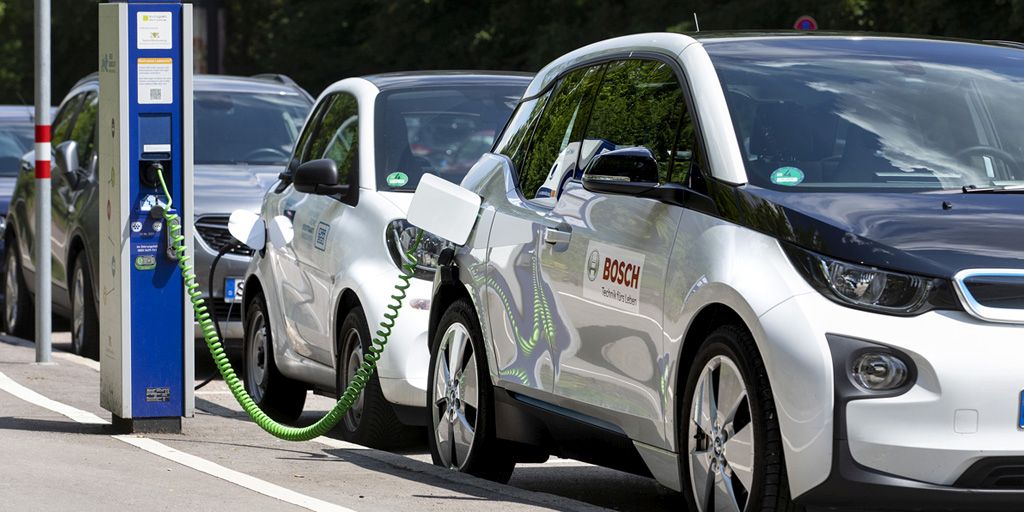Electric vehicles (EVs) have been widely coveted and it’s fair to say that opinion around them has been largely mixed. Many think they are the future, relieving pressure on our fossil fuel demand, while others question their viability for everyday drivers, the infrastructure in place to support their running and others question their cost.
It’s perhaps easy to see why the general consumer would be confused about whether or not to invest in such a car or even to trust that they are better for the environment than our traditionally fuelled alternatives. Here, we round up that latest news and advice regarding electric vehicles to help you make up your mind.
Are they really better for the environment?
In April this year, German economics professor, Hans-Werner Sinn published a report stating that electric vehicles were worse for the environment than diesel. His report was widely criticised by the industry with carmakers such a VW publicly contradicting its statements. However, more recently Sinn then followed his claims up with an article published in The Guardian which urged UK government to introduce a fuel tax on car drivers, believing this would be more effective than pushing car manufacturers to go electric.
This is perhaps worrying reading to both those considering purchasing an EV and those who own any car and are worried about potential tax hikes. However, just this week reassurance has come from William Todts, executive director of Transport & Environment, who has published his response to Sinn’s claim, again in The Guardian*. In this latest response, Todts states that comparisons between EVs and petrol or diesel cars are often skewed in favour of the traditionally fuelled vehicles.
He goes on to state the facts which are that every year we burn around 275m tonnes of petroleum and diesel in cars, vans and trucks in the EU alone. Petrol and diesel vehicles are hugely inefficient, with around 70% of the energy that goes into a car engine being wasted. Additionally, oil that is burned cannot be recovered, reused or recycled or made clean.
EVs combat this by not burning anything to work and while we still have work to do to make electricity clean, we are making great strides in our efforts here. Todts concludes that ‘The rise of electric cars and green power are some of the biggest climate success stories of the past few years.’
With this in mind, it’s safe to say that while many questions the green credentials of EVS, the overwhelming evidence points towards them being one of the best tactics we have for tackling our environmental issues.
How reliable are they?
According to the 2019 What Car? reliability survey, electric and hybrid vehicles ranked best overall. The survey stated their reliability rating was 96.1 per cent, compared to 86.5 percent for the poorest performing category which was luxury SUVs.
Add to this, the fact that the average range for an electric vehicle is now just over 200-miles and the numbers are stacking up in favour of EVs and their viability as a car that can be used for every day and should certainly go some way to combatting range anxiety, quoted as one of the biggest barriers to EV adoption.
What about the infrastructure to support EV use?
One of the other key barriers to widescale EV adoption has been the worry about the National Grid’s ability to handle the increased demand from mass adoption of such technology.
According to Wired Magazine** The UK’s National Grid currently has enough energy in its system to support a nation of EVs. However, issues would arise should everyone in the nation decide to charge their cars at roughly the same time, in the evenings after work for example. Having said this, there are schemes in place to tackle this issue too. One such scheme is Smart Charging, whereby the rate at which cars are charged varies depending on demand. Additionally, incentives to encourage people to charge at off-peak times are also being discussed which would also help relieve some of the pressure on the system, although all of these ideas need some development to work in reality and on a national scale. Having said that, a time when everyone has an EV is probably still a way off also, so we currently have time to iron out these initial teething issues.
How much can I expect to pay for an EV and how much do they cost to run?
According to Thatcham Research, KeeResources & manufacturer data*** the cost per mile of running an electric car is 67p compared to 74p per mile for its petrol equivalent. What’s inescapable however is the much higher cost of purchasing an EV in the first place (between £4,000 and £10,000 more depending on what type of car you’re looking at). Even with the maximum government subsidy of £3,500 you’re still looking at a larger outlay initially.
So, while the reality of purchasing an EV may be a way off for some, the reasons to have one at some point are stacking up. And, while there is still a lot of work to do to make them accessible to the wider population and to ensure the infrastructure to support a nation of EV drivers is in place, not to mention in changing attitudes to EVs, the very fact that humankind’s impact on the environment is front of the nation’s mind is warrant enough for their viability as an option for your next vehicle purchase to be at least considered it would seem.
**https://www.wired.co.uk/article/electric-vehicle-car-infrastructure-charging-point
***https://www.buyacar.co.uk/cars/economical-cars/electric-cars/650/cost-of-running-an-electric-car

